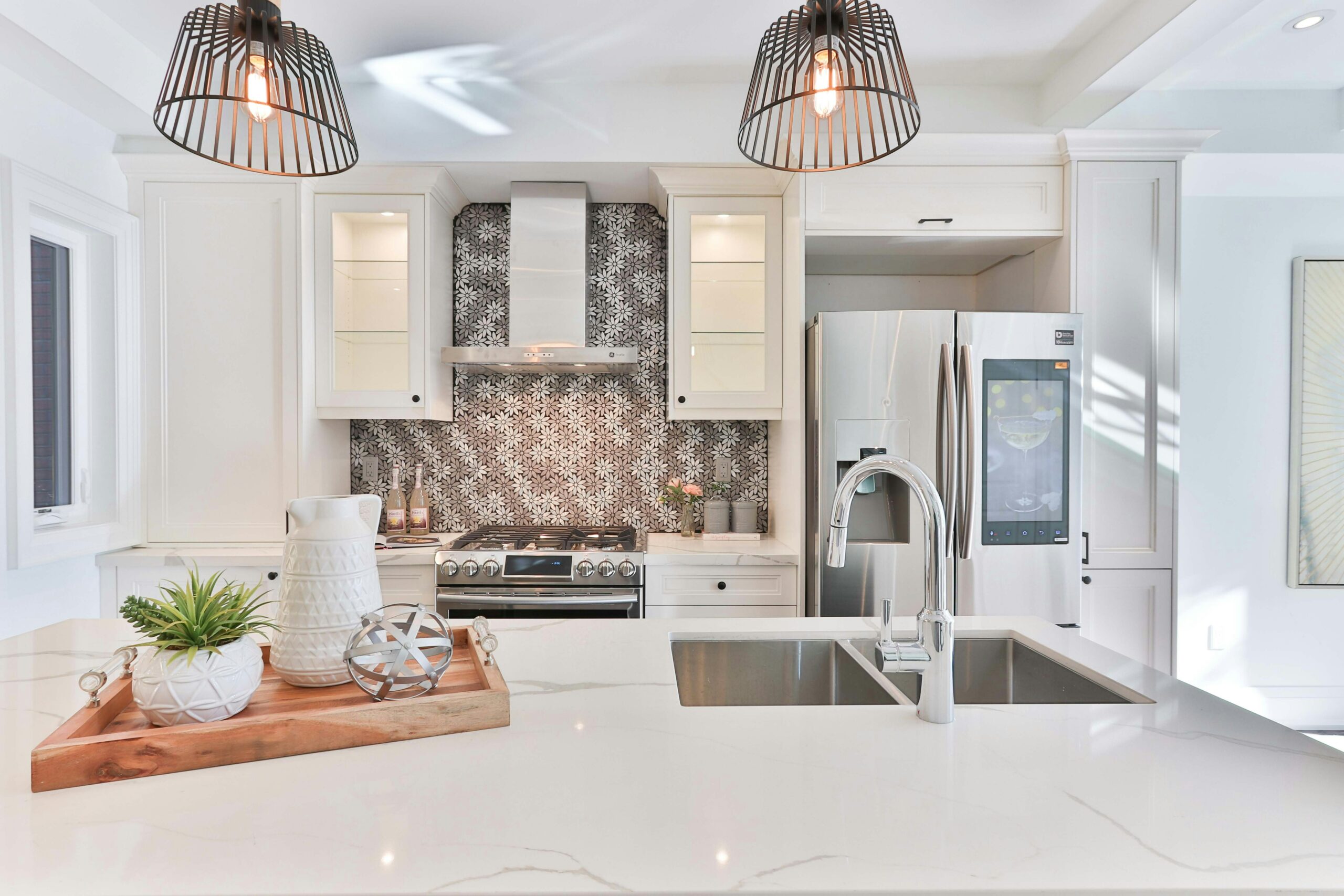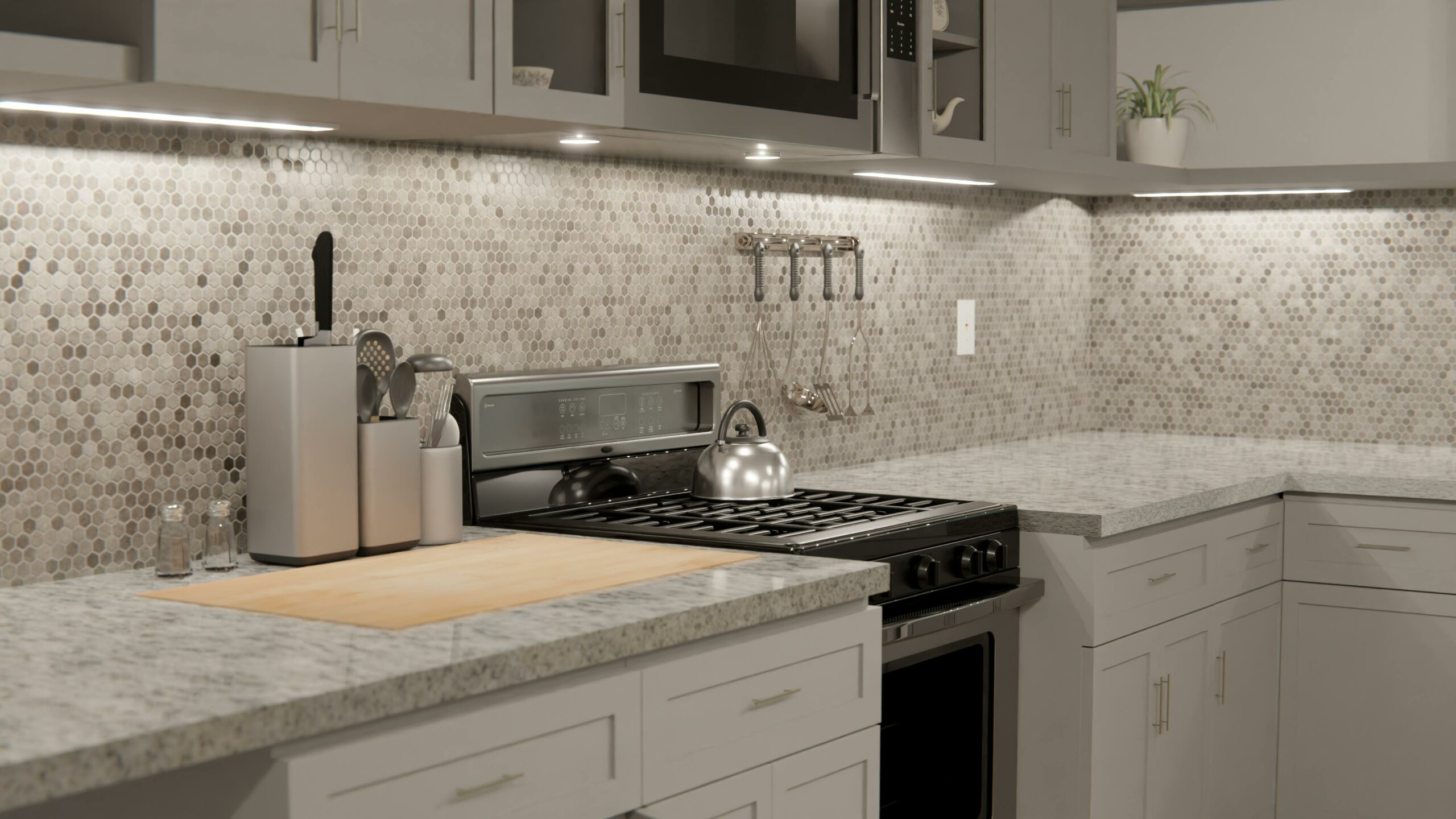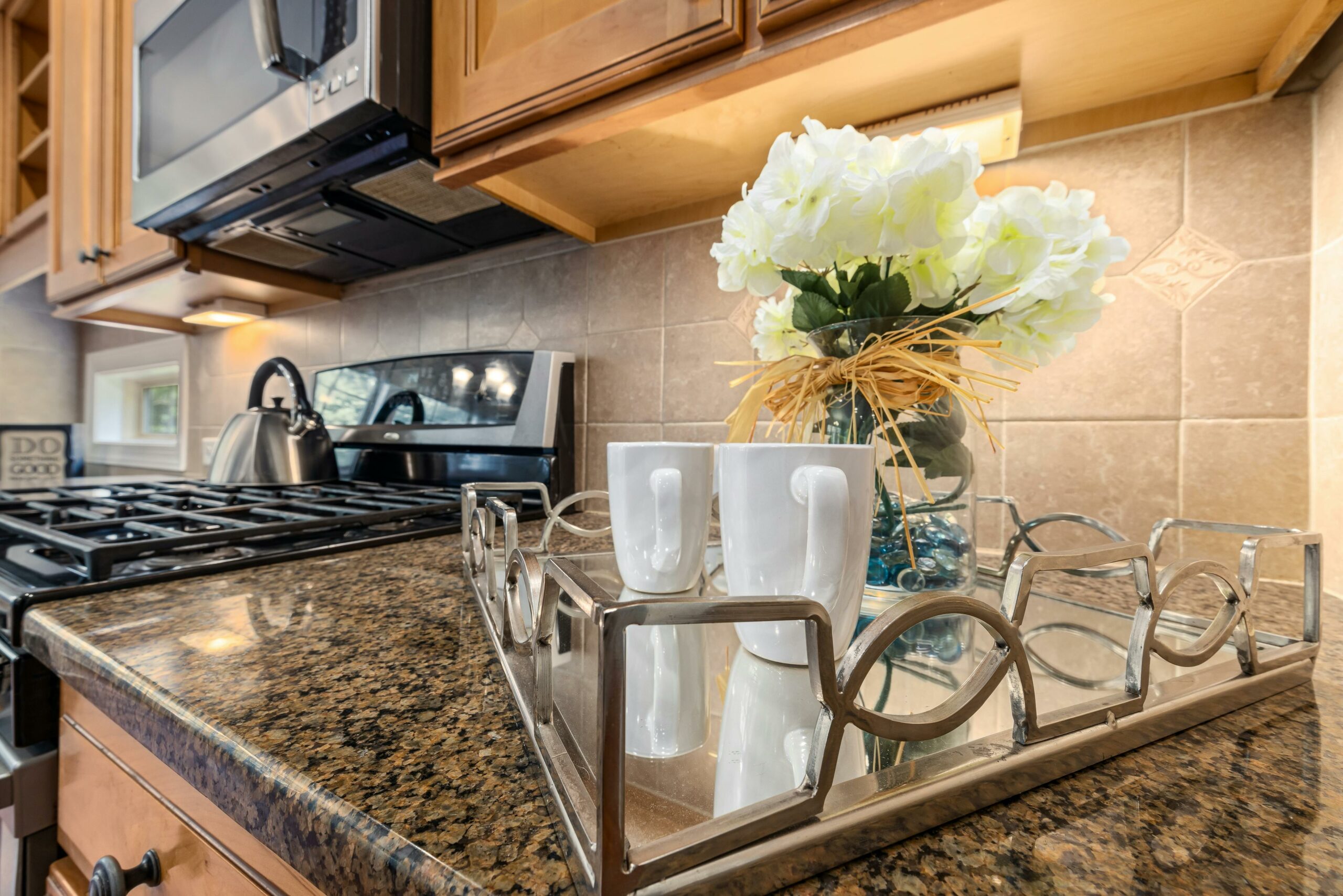Looking to elevate your home’s aesthetic with a natural, yet sophisticated touch? Quartz kitchen countertops are a brilliant choice. Known for their durability, aesthetics, and easy maintenance, quartz countertops can indeed enhance the beauty of any kitchen.
While the natural sparkle of these countertops is a compelling feature, it’s their robust solid material that often tips the balance for most homeowners. Made from one of the hardest minerals on earth, these countertops are arguably the most durable option for kitchens.
In this comprehensive guide, we will journey through the myriad benefits of quartz kitchen countertops that extend beyond their glossy looks. We will further delve into aspects such as choice, maintenance, decor enhancement, comparison with other materials, cost efficiency, and installation process. The comparison against a commonly favored counterpart, granite, significant reasons for its popularity, and its pros and cons, will also likely impose an interesting debate.
Our insights will inform and help you make the right decisions about your kitchen’s most prominent feature. Whether you’re a first-time homeowner, an interior designer, or a seasoned kitchen remodeler, this guide will come in handy when choosing the ideal kitchen countertops made from quartz.
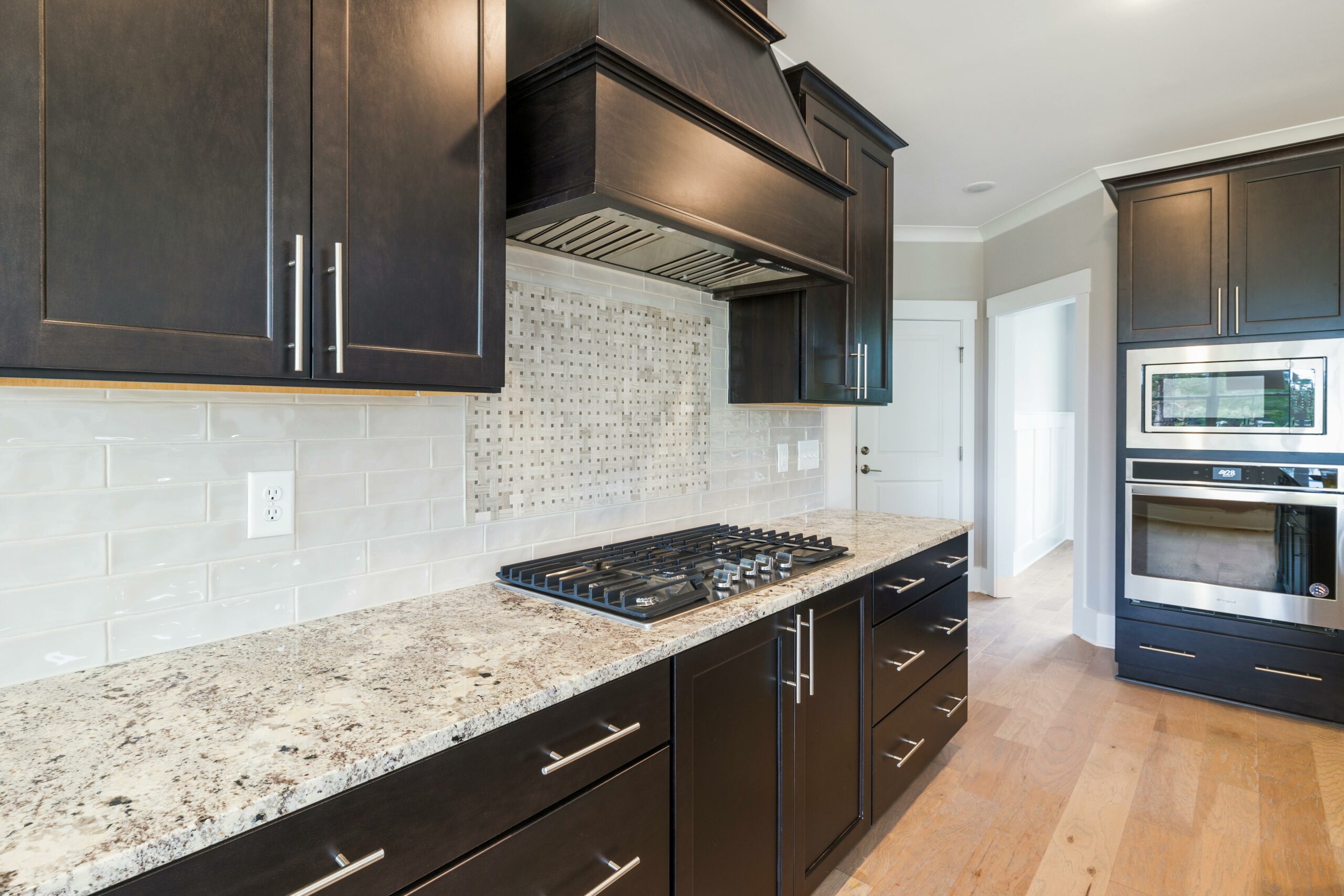
Understanding the Benefits of Quartz Kitchen Countertops
Quartz kitchen countertops have become increasingly popular in recent years due to their numerous benefits. Whether you are renovating your kitchen or building a new one, quartz countertops offer a range of advantages that make them a top choice for homeowners.
Durability and Strength
One of the key benefits of quartz kitchen countertops is their exceptional durability and strength. Made from a combination of natural quartz stone and resin, these countertops are highly resistant to scratches, stains, and heat. They can withstand the daily wear and tear of a busy kitchen, making them a long-lasting investment.
Low Maintenance
Another advantage of quartz countertops is their low maintenance requirements. Unlike natural stone countertops, quartz does not require sealing or polishing. It is non-porous, meaning it doesn’t absorb liquids or harbor bacteria, making it easy to clean and maintain. Simply wipe it down with a mild soap and water solution, and your quartz countertop will look as good as new.
Wide Range of Colors and Patterns
Quartz countertops offer an extensive range of colors and patterns to choose from, allowing you to find the perfect match for your kitchen decor. Whether you prefer a classic white countertop or a bold and vibrant pattern, there is a quartz option to suit every style and taste.
Resistant to Stains and Bacteria
Due to its non-porous nature, quartz is highly resistant to stains and bacteria. This makes it an ideal choice for kitchen countertops, where spills and food preparation are common. With quartz, you won’t have to worry about red wine stains or bacteria growth, ensuring a clean and hygienic kitchen environment.
Environmentally Friendly
Quartz countertops are also considered environmentally friendly. They are made from natural quartz stone, which is one of the most abundant minerals on Earth. Additionally, the manufacturing process of quartz countertops utilizes recycled materials, reducing waste and environmental impact.
- Durable and long-lasting
- Low maintenance
- Wide range of colors and patterns
- Resistant to stains and bacteria
- Environmentally friendly
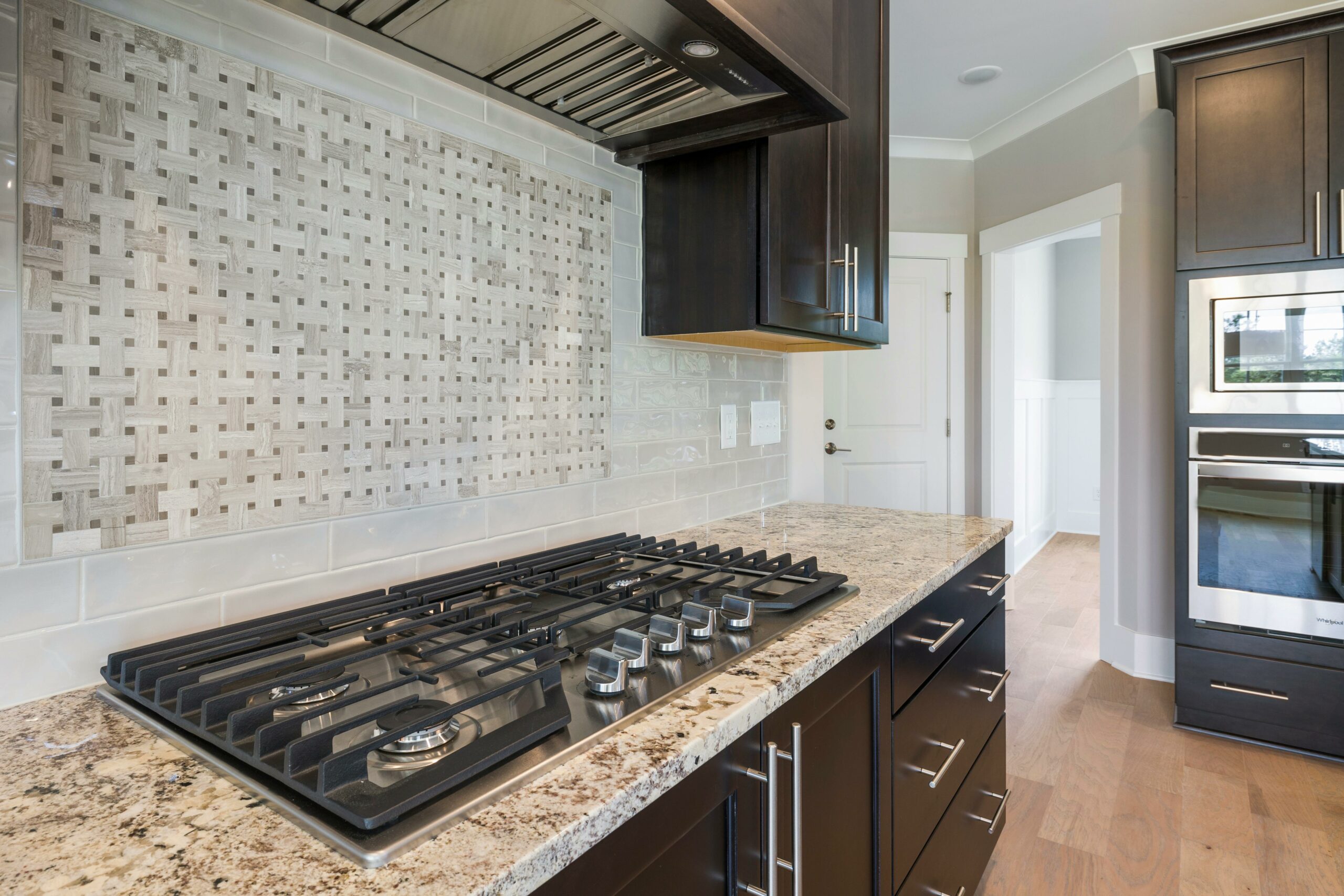
How to Choose the Right Quartz for Your Kitchen
Choosing the right quartz for your kitchen countertops is an important decision that can greatly impact the overall look and feel of your kitchen. Here are some key factors to consider when making your selection:
1. Color and Pattern
Quartz countertops come in a wide range of colors and patterns, allowing you to find the perfect match for your kitchen design. Consider the existing color scheme and style of your kitchen, and choose a quartz color and pattern that complements it.
2. Durability
Quartz is known for its durability and resistance to scratches, stains, and heat. When choosing quartz for your kitchen countertops, make sure to select a high-quality quartz that is engineered to withstand daily wear and tear.
3. Thickness
The thickness of quartz countertops can vary, and it’s important to choose the right thickness for your needs. Thicker countertops provide a more substantial and luxurious look, while thinner countertops can be more cost-effective.
4. Finish
Quartz countertops come in a variety of finishes, including polished, honed, and textured. Consider the level of shine and texture that you prefer, as well as the maintenance requirements of each finish.
5. Edge Profile
The edge profile of your quartz countertops can add a decorative touch to your kitchen. There are various edge profiles to choose from, such as straight, beveled, bullnose, and ogee. Select an edge profile that complements the overall style of your kitchen.
6. Price
Quartz countertops can vary in price depending on the quality, brand, and design. Set a budget for your kitchen renovation and choose a quartz that fits within your budget while still meeting your desired specifications.
7. Warranty
When purchasing quartz countertops, be sure to inquire about the warranty offered by the manufacturer or supplier. A good warranty can provide peace of mind and protect your investment.
By considering these factors and doing thorough research, you can choose the right quartz for your kitchen countertops that not only enhances the aesthetic appeal of your kitchen but also meets your functional needs.
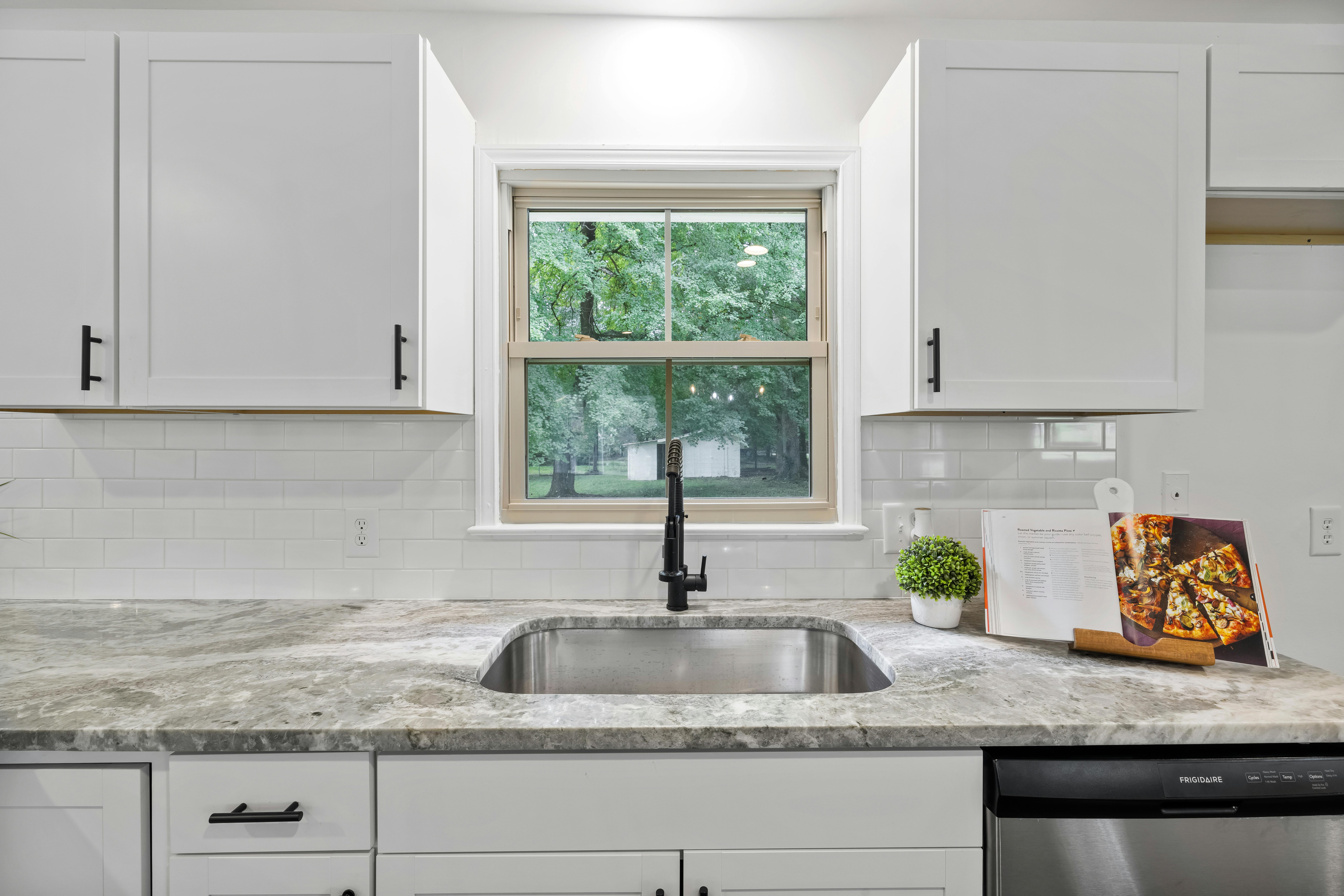
Maintaining the Shine of Your Quartz Kitchen Countertops
Quartz kitchen countertops are known for their durability, beauty, and low maintenance. To keep your quartz countertops looking shiny and new, here are some tips to follow:
1. Clean spills immediately
Quartz is a non-porous material, which means it is resistant to stains. However, it is still important to clean up spills as soon as possible to prevent any potential damage. Use a mild dish soap and warm water to wipe away spills and stains.
2. Avoid harsh cleaners
While quartz is a durable material, it is best to avoid using harsh chemicals or abrasive cleaners on your countertops. These can cause damage and dull the shine of the surface. Stick to gentle, non-abrasive cleaners specifically designed for quartz surfaces.
3. Use a soft cloth or sponge
When cleaning your quartz countertops, use a soft cloth or sponge to avoid scratching the surface. Avoid using abrasive scrub brushes or steel wool, as these can cause damage. Gently wipe the surface in a circular motion to remove any dirt or debris.
4. Protect from heat
Quartz is heat-resistant, but it is still important to use trivets or hot pads when placing hot pots, pans, or dishes on the countertops. Extreme heat can cause thermal shock and potentially damage the surface. Always use proper protection to maintain the shine of your quartz countertops.
5. Avoid cutting directly on the surface
While quartz is a durable material, it is still susceptible to scratches. To maintain the shine of your countertops, avoid cutting directly on the surface. Always use a cutting board to protect the quartz from any potential damage.
6. Regularly clean and dry
To keep your quartz countertops looking their best, it is important to regularly clean and dry the surface. Wipe down the countertops with a mild cleaner and water solution, then dry with a soft cloth to prevent any water spots or streaks.
By following these simple maintenance tips, you can ensure that your quartz kitchen countertops maintain their shine and beauty for years to come.
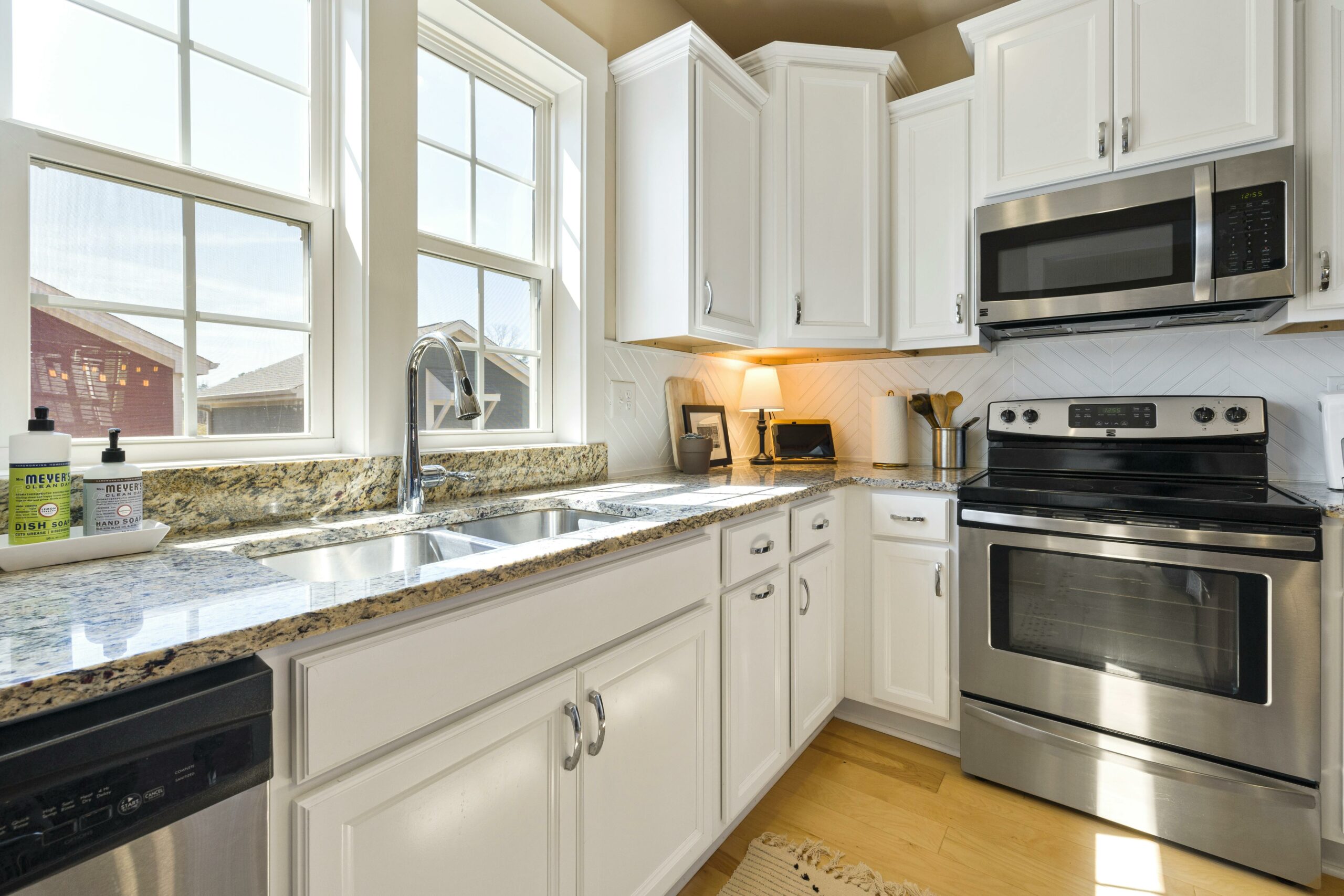
The Role of Quartz Kitchen Countertops in Enhancing Kitchen Decor
Quartz kitchen countertops play a significant role in enhancing the overall decor of a kitchen. With their stunning appearance and versatility, they can transform any kitchen into a stylish and elegant space. Whether you have a traditional or modern kitchen design, quartz countertops can seamlessly blend in and elevate the aesthetic appeal.
Enhancing the Visual Appeal
One of the main reasons why quartz kitchen countertops are popular is their ability to enhance the visual appeal of the kitchen. With a wide range of colors, patterns, and finishes available, you can easily find the perfect quartz countertop that complements your kitchen decor. Whether you prefer a classic white countertop or a bold and vibrant one, quartz offers endless possibilities for customization.
Creating a Focal Point
Quartz countertops can also serve as a focal point in your kitchen. Their natural beauty and unique patterns can draw attention and become the centerpiece of the room. By selecting a quartz countertop with striking veining or bold colors, you can create a visually stunning focal point that adds character and personality to your kitchen.
Adding Elegance and Sophistication
Quartz countertops have a luxurious and sophisticated look that can instantly elevate the overall ambiance of your kitchen. The smooth and polished surface of quartz exudes elegance and creates a sense of refinement. Whether you have a contemporary or traditional kitchen style, quartz countertops can add a touch of class and sophistication.
Enhancing the Overall Design
Quartz countertops can seamlessly blend in with any kitchen design, enhancing the overall aesthetic appeal. Whether you have a sleek and modern kitchen or a cozy and rustic one, quartz can complement the existing elements and tie the whole design together. Its versatility allows it to be used in various kitchen styles, making it a popular choice among homeowners and interior designers.
Increasing Property Value
In addition to enhancing the visual appeal and design of your kitchen, quartz countertops can also increase the value of your property. Potential buyers are often attracted to kitchens with high-quality and stylish countertops, and quartz is known for its durability and longevity. By investing in quartz kitchen countertops, you can not only enjoy their aesthetic benefits but also potentially increase the resale value of your home.
Overall, quartz kitchen countertops play a vital role in enhancing kitchen decor. With their stunning appearance, versatility, and ability to elevate the overall design, they are a popular choice among homeowners and interior designers. Whether you want to create a focal point, add elegance and sophistication, or enhance the visual appeal of your kitchen, quartz countertops are a perfect choice.
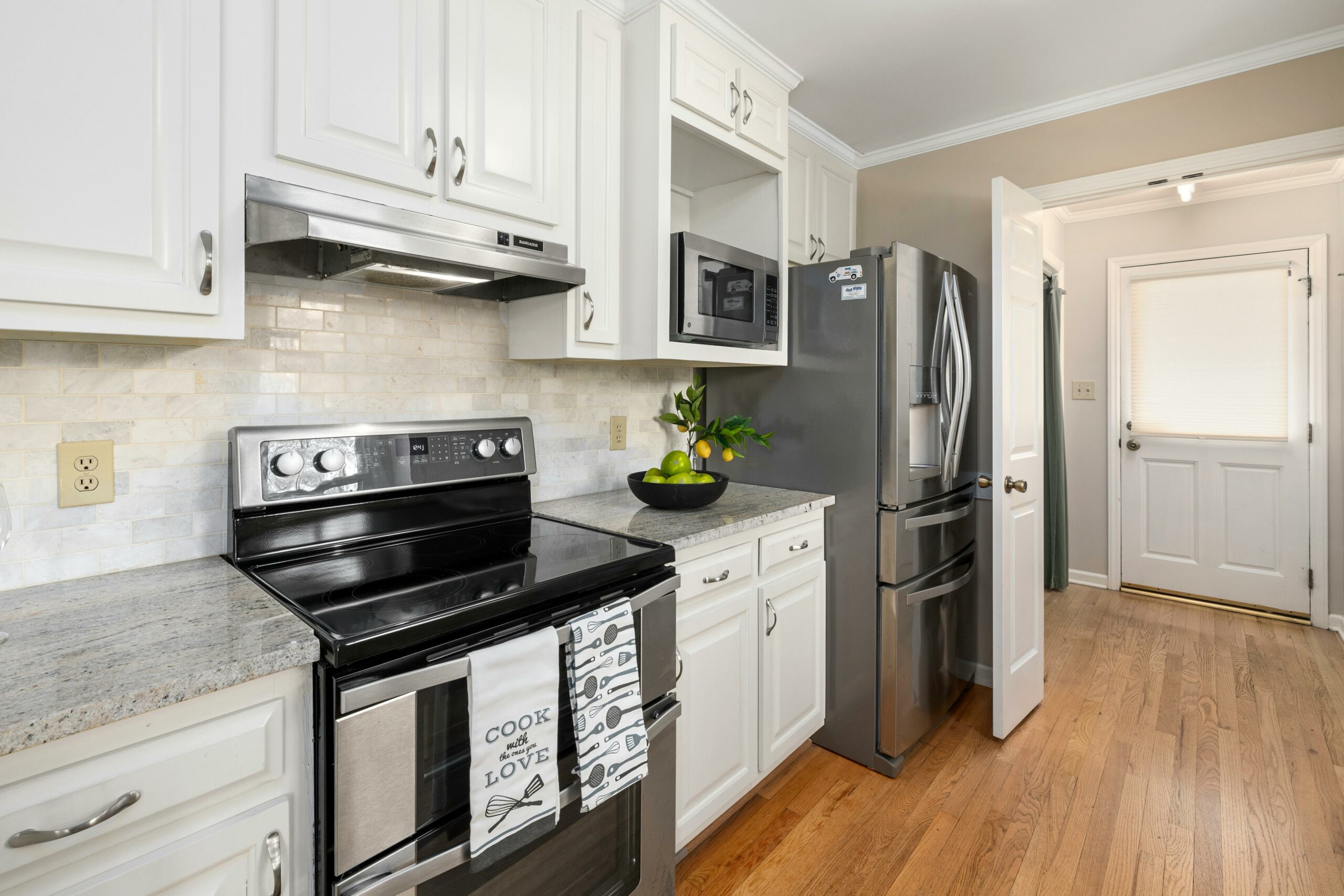
Comparing Quartz Kitchen Countertops with Other Materials
When it comes to choosing the right material for your kitchen countertops, there are several options available in the market. One of the most popular choices is quartz. However, it’s essential to understand how quartz kitchen countertops compare to other materials before making a decision.
Quartz Kitchen Countertops Versus Granite: A Comparison
Granite has long been a popular choice for kitchen countertops due to its natural beauty and durability. However, quartz has gained significant popularity in recent years due to its unique characteristics.
- Appearance: While granite offers a wide range of natural patterns and colors, quartz provides a more consistent and uniform appearance. This can be an advantage for those looking for a sleek and modern look in their kitchen.
- Maintenance: Granite countertops require regular sealing to prevent stains and bacteria growth. On the other hand, quartz is non-porous and does not require sealing. It is also resistant to stains, scratches, and heat.
- Durability: Both quartz and granite are durable materials, but quartz is known for its superior strength and resistance to chipping and cracking.
- Price: Granite countertops tend to be more expensive than quartz. While the exact cost may vary depending on factors such as the quality of the stone and the complexity of the installation, quartz generally offers a more cost-effective option.
Other Materials Comparison
Aside from granite, there are other materials commonly used for kitchen countertops, such as marble, laminate, and solid surface.
- Marble: Marble countertops offer a luxurious and timeless look. However, they are more prone to staining and require regular maintenance.
- Laminate: Laminate countertops are a budget-friendly option and come in a variety of colors and patterns. However, they are not as durable as quartz and can be easily damaged by heat and sharp objects.
- Solid Surface: Solid surface countertops, like quartz, are non-porous and resistant to stains and bacteria. However, they may not be as durable as quartz and can be more prone to scratches.
When comparing quartz kitchen countertops with other materials, it’s essential to consider factors such as appearance, maintenance, durability, and price. Ultimately, the choice will depend on your personal preferences and needs for your kitchen.
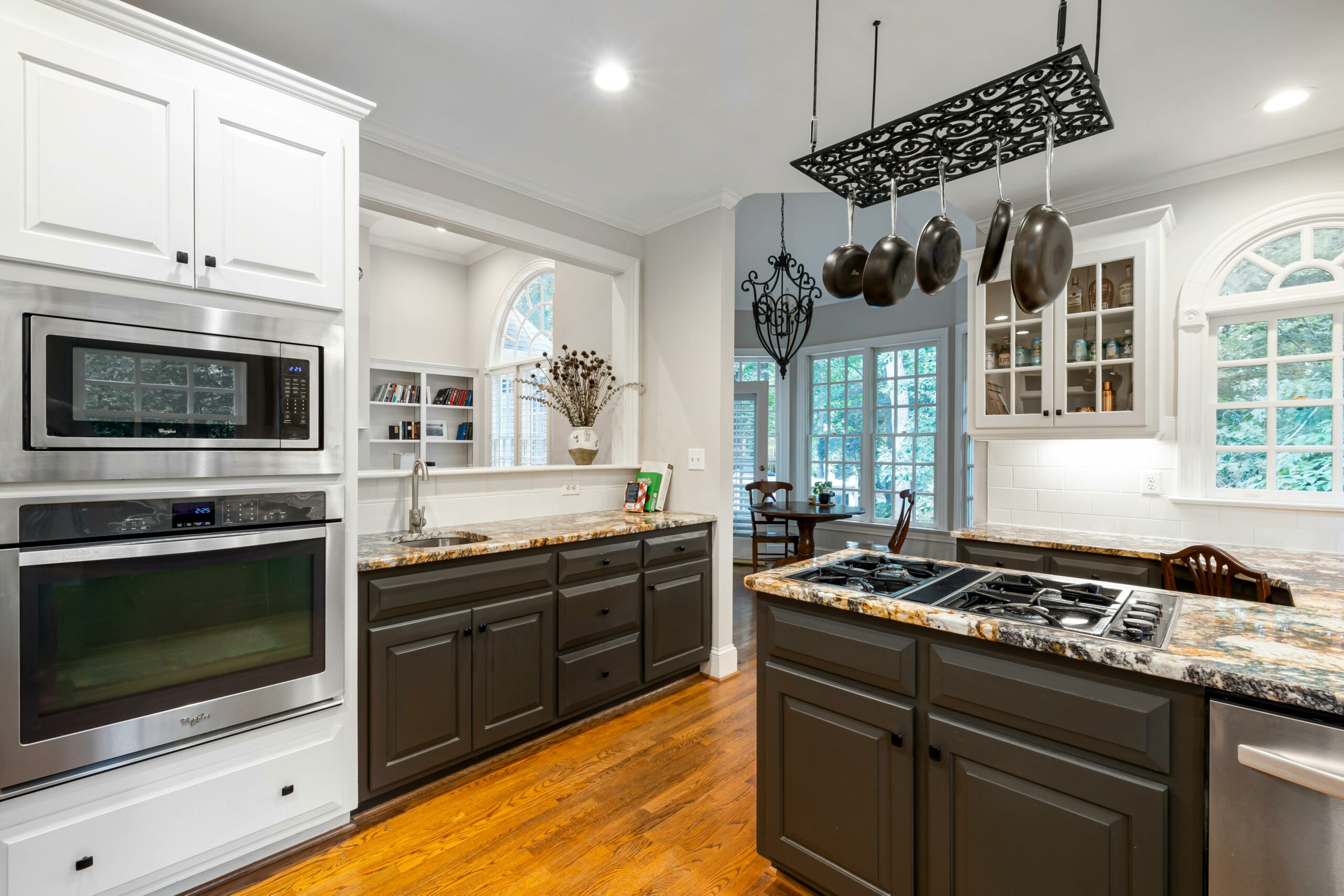
The Cost Efficiency of Quartz Kitchen Countertops
Quartz kitchen countertops are not only beautiful and durable, but they are also cost-effective options for your kitchen. Here are some reasons why quartz countertops are a cost-efficient choice:
1. Longevity
Quartz countertops are known for their longevity. They are made up of 93% natural quartz stone and 7% resin, making them highly durable and resistant to scratches, stains, and heat. With proper care and maintenance, quartz countertops can last for decades, saving you money on frequent replacements.
2. Low Maintenance
One of the reasons why quartz countertops are cost-efficient is because they require minimal maintenance. Unlike natural stone countertops, quartz does not require sealing. It is non-porous, which means it does not absorb liquids or harbor bacteria. This makes cleaning and maintaining quartz countertops a breeze, saving you time and money on expensive cleaning products.
3. Resistant to Damage
Quartz countertops are highly resistant to damage. They are less likely to chip or crack compared to other materials like granite. This means you won’t have to spend extra money on repairs or replacements due to accidental impacts or heavy kitchen utensils.
4. Cost-Effective Installation
Installing quartz countertops is a cost-effective process. Unlike natural stone countertops that require special handling and sealing, quartz countertops can be easily installed by professionals. The installation process is quicker and more straightforward, reducing labor costs.
5. Energy Efficiency
Quartz countertops are also energy-efficient. They have excellent insulation properties, which means they can help maintain the temperature in your kitchen. This can result in lower energy bills as your kitchen appliances won’t have to work as hard to maintain the desired temperature.
Overall, quartz kitchen countertops offer a cost-efficient solution for homeowners. With their longevity, low maintenance, resistance to damage, cost-effective installation, and energy efficiency, quartz countertops are a smart investment that can save you money in the long run.
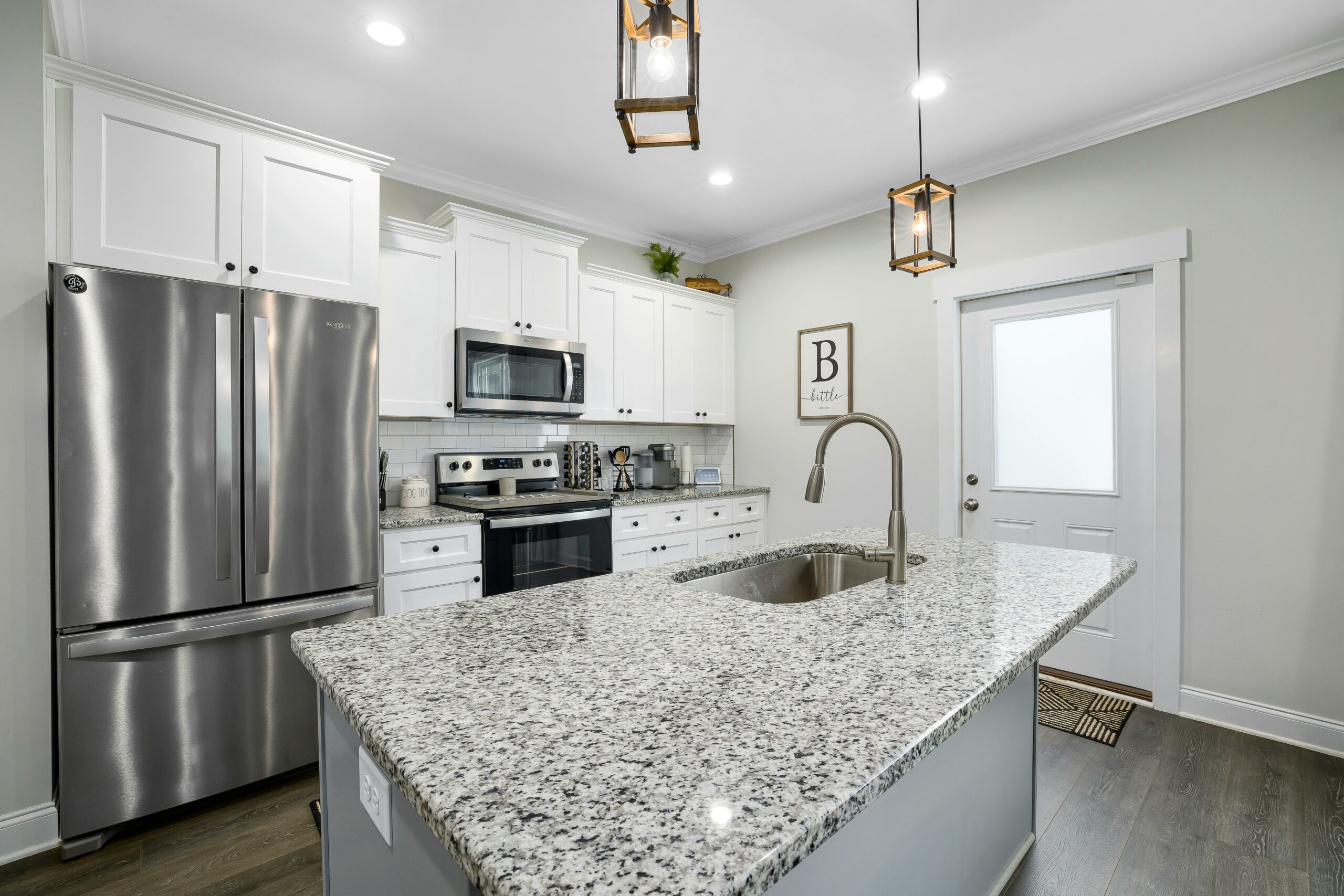
Quartz Kitchen Countertops Versus Granite: A Comparison
When it comes to choosing the perfect kitchen countertop material, two options often stand out: quartz and granite. Both materials have their own unique characteristics and advantages, making it important to understand the differences between them. In this article, we will compare quartz kitchen countertops with granite countertops to help you make an informed decision for your kitchen.
1. Appearance and Design
Quartz: Quartz countertops are engineered stone surfaces made by combining natural quartz with resins and pigments. They are available in a wide range of colors and patterns, offering endless design possibilities. The manufacturing process allows for consistent patterns and colors throughout the slab.
Granite: Granite countertops are natural stone surfaces that are mined from quarries and cut into slabs. Each slab of granite has its own unique pattern and color variations, making it a popular choice for those who prefer a natural and organic look in their kitchen.
2. Durability and Maintenance
Quartz: Quartz countertops are highly durable and resistant to scratches, stains, and heat. They are non-porous, which means they do not require sealing and are resistant to bacteria and mold growth. Cleaning quartz countertops is easy, requiring only mild soap and water.
Granite: Granite countertops are also durable and heat-resistant. However, they are porous and require regular sealing to prevent stains and bacteria buildup. Cleaning granite countertops requires specific granite cleaners to maintain their shine and prevent damage.
3. Cost
Quartz: Quartz kitchen countertops are generally more expensive than granite countertops. The cost of quartz countertops can vary depending on the brand, color, and thickness.
Granite: Granite countertops are typically less expensive than quartz countertops. The price of granite can vary depending on the quality, rarity, and thickness of the slab.
4. Installation Process
Quartz: Quartz countertops are usually installed by professionals. The installation process involves measuring, cutting, and fitting the quartz slabs onto the cabinets. The edges are then polished to achieve a seamless look.
Granite: Granite countertops also require professional installation. The process involves measuring, cutting, and fitting the granite slabs onto the cabinets. The edges are then polished to create a smooth and finished appearance.
5. Environmental Impact
Quartz: Quartz countertops are considered more environmentally friendly than granite countertops. They are made from a combination of natural quartz and recycled materials, reducing the need for quarrying new stones.
Granite: Granite countertops have a larger environmental impact due to the quarrying process and transportation of the heavy slabs. However, some granite suppliers offer eco-friendly options that minimize the environmental impact.
Overall, both quartz and granite kitchen countertops have their own unique features and benefits. It ultimately comes down to personal preference, budget, and the specific needs of your kitchen. Consider the factors mentioned above to make an informed decision and choose the countertop material that best suits your style and lifestyle.
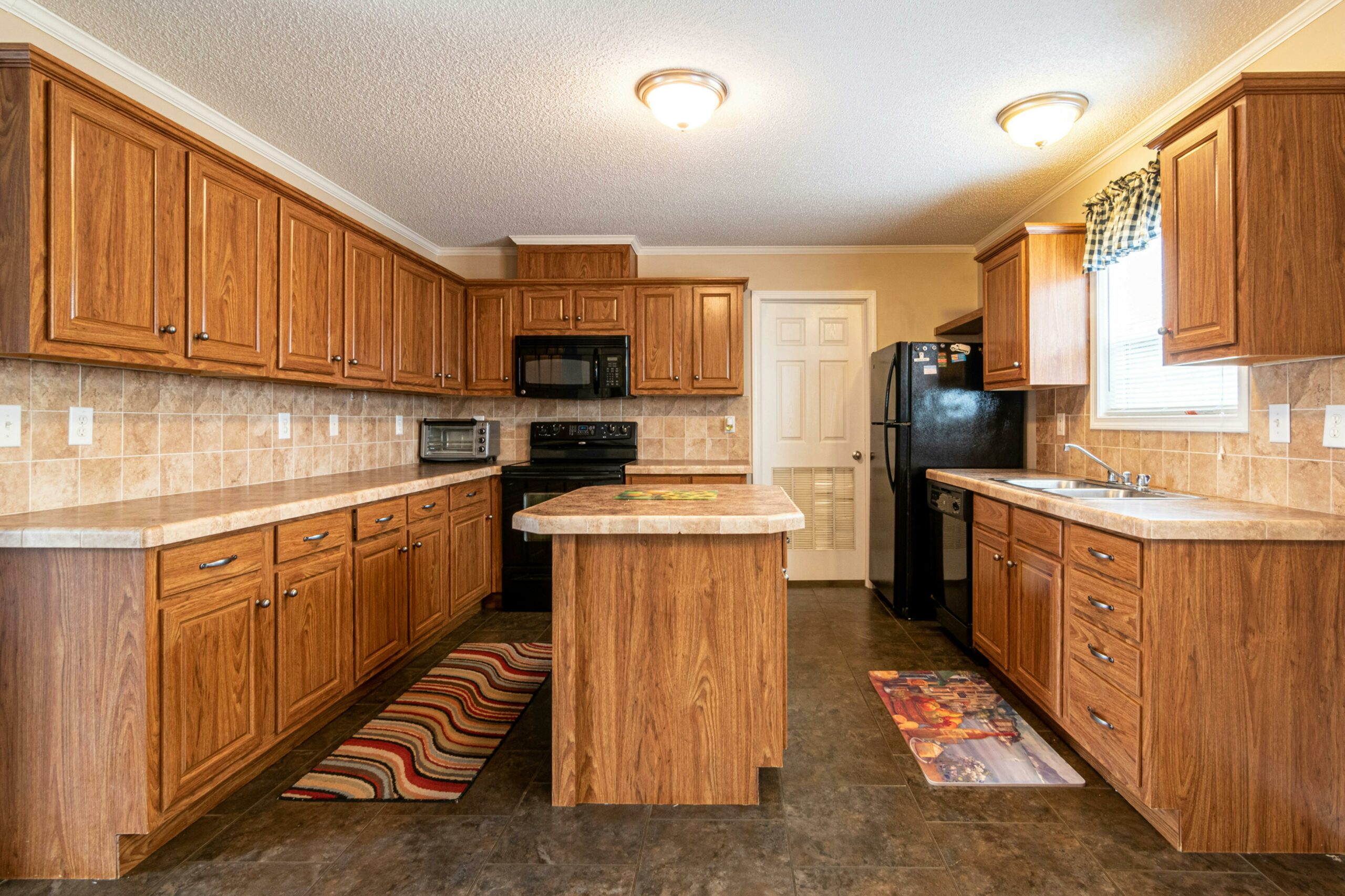
Installation Process of Quartz Kitchen Countertops
Installing quartz kitchen countertops requires careful planning and precise execution. Here is a step-by-step guide to the installation process:
1. Measure and Template
The first step in installing quartz kitchen countertops is to accurately measure the dimensions of your kitchen. This will ensure that the countertops fit perfectly. A template is then created based on these measurements, which will serve as a guide during the installation.
2. Prepare the Area
Before installing the quartz countertops, it is important to prepare the area. This involves removing the old countertops, disconnecting any appliances, and ensuring that the cabinets are level and sturdy.
3. Cut and Shape the Quartz
The quartz slabs are cut and shaped according to the template. This is done using special tools and equipment to ensure precision and accuracy.
4. Install the Countertops
The quartz countertops are then carefully placed on top of the cabinets. Adhesive is applied to secure the countertops in place. The seams between the slabs are also sealed to create a seamless and smooth surface.
5. Attach Sink and Appliances
Once the countertops are installed, the sink and appliances can be reconnected. Holes are cut into the quartz to accommodate the sink and any other fixtures.
6. Finishing Touches
Finally, the installation process is completed by adding the finishing touches. This includes applying a sealant to protect the quartz and enhance its shine. The edges of the countertops can also be finished with a decorative trim if desired.
By following these steps, you can ensure a successful installation of quartz kitchen countertops that will not only enhance the beauty of your kitchen but also provide durability and functionality for years to come.
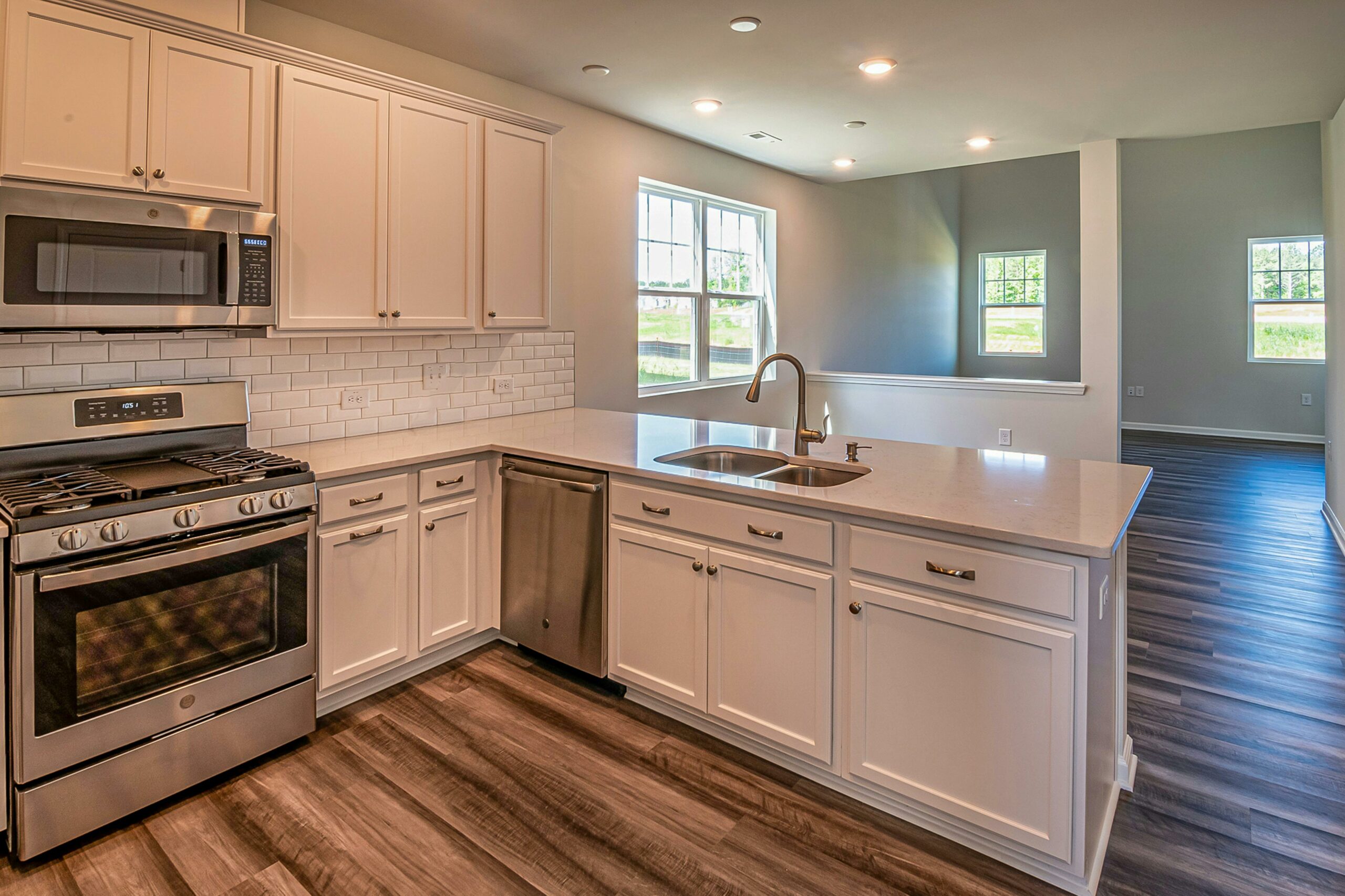
Why Quartz Kitchen Countertops are a Popular Choice
Quartz kitchen countertops have gained immense popularity in recent years. Their unique characteristics and benefits make them a top choice for homeowners and designers alike.
One of the main reasons why quartz countertops are so popular is their durability. Made from natural quartz crystals and resin binders, these countertops are incredibly strong and resistant to scratches, stains, and heat. This makes them perfect for a busy kitchen environment where spills and accidents are common.
Another reason for their popularity is the wide range of colors and patterns available. Quartz countertops can be manufactured to mimic the look of natural stone, such as granite or marble, but with more consistency in color and pattern. This allows homeowners to achieve the desired aesthetic for their kitchen without the need for extensive maintenance.
Quartz countertops are also known for their low maintenance requirements. Unlike natural stone countertops, quartz does not require sealing or polishing. It is non-porous, which means it does not absorb liquids or harbor bacteria, making it hygienic and easy to clean.
In addition to their durability and low maintenance, quartz countertops are also eco-friendly. The manufacturing process of quartz countertops involves recycling and reusing materials, reducing the environmental impact. Furthermore, quartz is a sustainable resource and does not deplete natural stone reserves.
Lastly, quartz kitchen countertops offer excellent value for money. While they may initially have a higher upfront cost compared to other materials, their long-term benefits outweigh the investment. Quartz countertops are known to increase the value of a home and can last for many years without needing to be replaced.
In conclusion, the popularity of quartz kitchen countertops can be attributed to their durability, wide range of colors and patterns, low maintenance requirements, eco-friendliness, and value for money. These countertops offer a perfect combination of style and functionality, making them a popular choice among homeowners and designers.
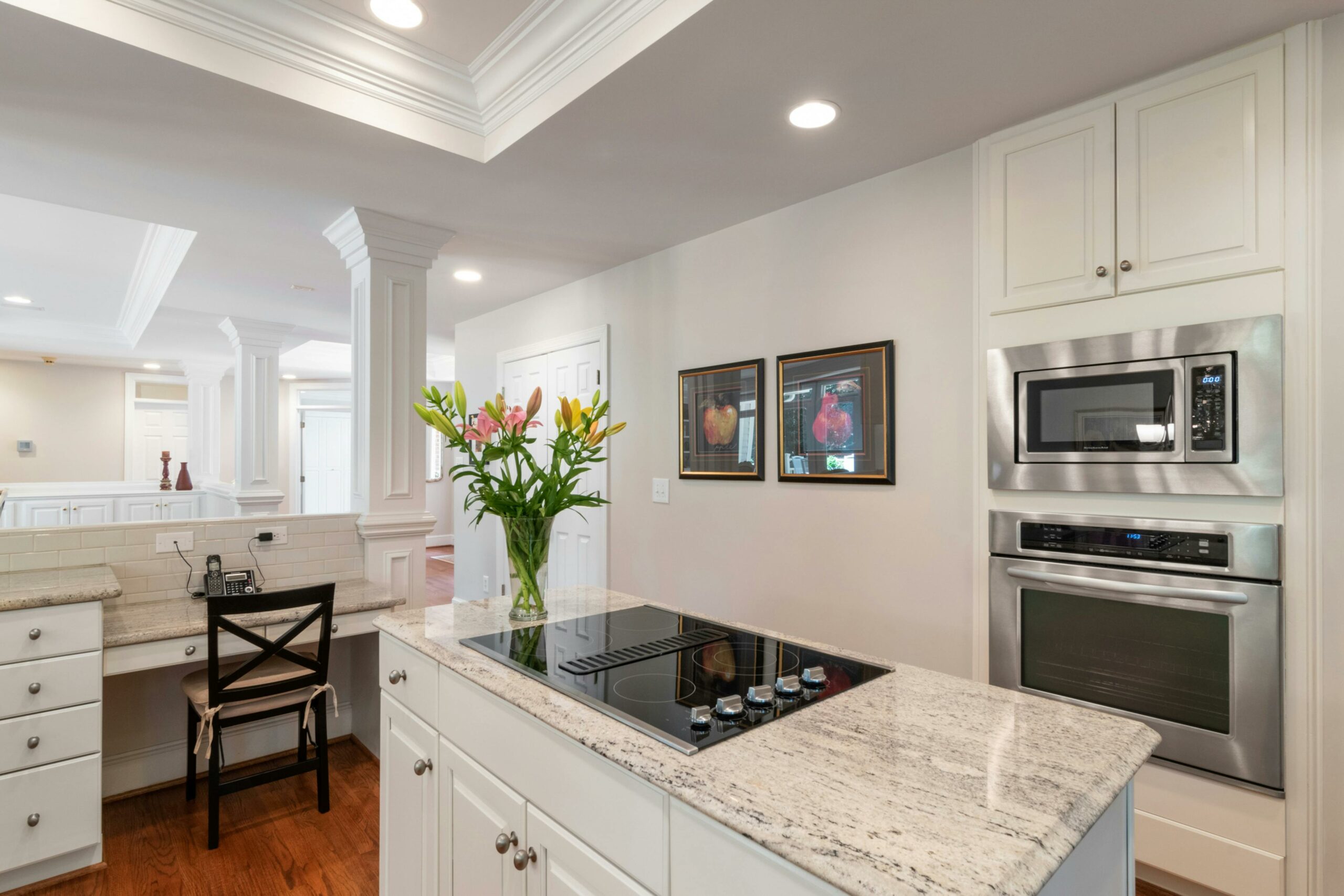
Pros and Cons of Quartz Kitchen Countertops
Quartz kitchen countertops have become increasingly popular in recent years due to their durability, versatility, and aesthetic appeal. However, like any other material, quartz countertops also have their pros and cons. In this section, we will explore the advantages and disadvantages of choosing quartz for your kitchen countertops.
Pros:
- Durability: Quartz countertops are known for their exceptional durability. They are resistant to scratches, stains, and heat, making them a perfect choice for busy kitchens.
- Low Maintenance: Unlike natural stone countertops, quartz requires minimal maintenance. It is non-porous, which means it doesn’t require sealing and is resistant to bacteria and mold growth.
- Wide Range of Colors and Patterns: Quartz countertops offer a vast array of colors and patterns to choose from, allowing you to find the perfect match for your kitchen decor.
- Consistency: Unlike natural stone, quartz countertops have a consistent pattern and color throughout the slab, ensuring a uniform look for your kitchen.
- Stain Resistance: Quartz is highly resistant to stains from common kitchen substances like wine, coffee, and oil. This makes it an excellent choice for households with young children or avid cooks.
Cons:
- Cost: Quartz countertops can be more expensive than other materials, such as laminate or tile. However, the durability and longevity of quartz often outweigh the initial investment.
- Not Heat Resistant: While quartz is generally heat resistant, extreme heat can cause damage to the surface. It is important to use trivets or hot pads to protect your quartz countertops from direct heat exposure.
- Difficult to Repair: In the event of damage, repairing quartz countertops can be challenging. It is recommended to consult a professional for repairs to ensure the best results.
- Weight: Quartz countertops are heavy, which may require additional support during installation. It is essential to consider the structural integrity of your kitchen cabinets before installing quartz countertops.
- Limited Seams: Due to the size limitations of quartz slabs, larger countertops may require seams. While skilled installation can minimize the visibility of seams, they may still be noticeable.
Considering these pros and cons can help you make an informed decision when choosing quartz kitchen countertops for your home. It is essential to weigh the benefits and drawbacks based on your specific needs and budget to ensure you select the best option for your kitchen.

